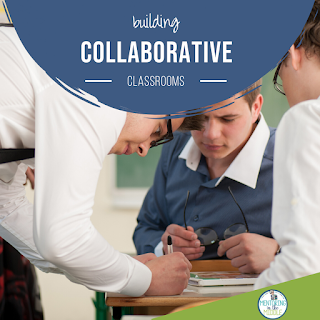Some years ago, I had a
sixth-grader I’m calling "Mikey" in my homeroom who came with a
reputation for being quite a liar. He was adorable, with the biggest brown eyes and a
smattering of freckles across his cheeks.
I kept a close but friendly eye on him in the beginning, as he presented
himself in totally charming ways. He loved my attention and was filled
with engaging stories about his success at taking all kinds of computers apart
and putting back together again. He bragged about his ability to hack into systems but was quick to say he would never do that. He knew that was wrong.
I noticed that he didn't have
many friends, and when he spoke to kids, their responses were guarded. I
couldn't figure out why. What about him seemed like a difficult student?
Then one day, a group of boys
approached me about an incident with Mikey in the bathroom. I was
surprised when one said, "Oh, Mrs. Piersol-Miller, you have no idea what
he's like. He's all nice to you but he says and does awful things to
kids."
That was the moment I started a
startling but important journey to get to know Mikey better. To my face,
he continued to be a fun, charming young boy filled with stories. Behind
my back, he swore like a sailor, threatened students, and accused them of
instigating events against him.
As we worked together over the
course of the year, I started to see a pattern. He was always busy at
work and didn’t need my help, but then he would mysteriously lose his work or
not turn it in: “Oh yeah, I left it at home.
I’ll bring it tomorrow.” “I turned
it in, I know I put it in your bin!”
He was never wrong. It
was only when I would challenge him one-on-one that he would confess to perhaps
having stretched the truth. “I was just having fun; I was joking around.” When I’d explain that what he’d done or said
wasn’t funny, he’d usually agree. Still,
he was quick to say that his peers were the reason for him to get into
trouble.
Like many teachers, I spend a
lot of time building a safe, collaborative community in my classroom. I
had to talk to my students multiple times about turning the other cheek or
walking away, to continue to make room for him in my class. There were no
other options. My administrators felt it
was better for him to be in school than to be at home. It was hard. He
continued to be mean and demean other kids. I felt so badly for them, but
my hands felt like they were tied.
The more I think about Mikey,
the more I wonder what will happen to him as he gets older. Will he be a productive citizen? Will he be in jail? Will he work for someone and help their
business grow? Will he own a small
business? Will he talk his
way up in some big corporation? Will he
serve on a school board? Will he hack into someone's network? Work in local or
national government?
We work so hard at loving our
students, hoping that we might be the right mix of actions and empathy that they
need. Did I get through to Mikey? Will he take the fair way I tried with him and
use it to do the same in his adult life?
I have no idea.
I’m struck right now, as we grow increasingly worn down by
the prospect of a pandemic that will
last longer than we’d thought, as we try to help our kids navigate their way
through healthy social-and-emotional changes, that we need, in all facets of
our world, people who treat us honestly and without being mean. People who lead us with a “can-do” spirit
into working collaboratively on behalf of and for each other. People who demonstrate empathy. People who do for our country what we try to
do in our classrooms.
And so, I still wonder.
Where is the place for the Mikeys of this world?




No comments
Post a Comment